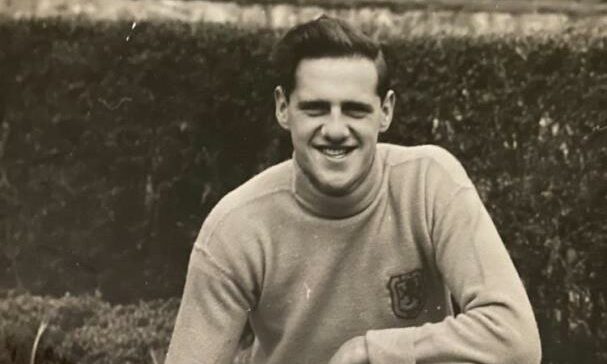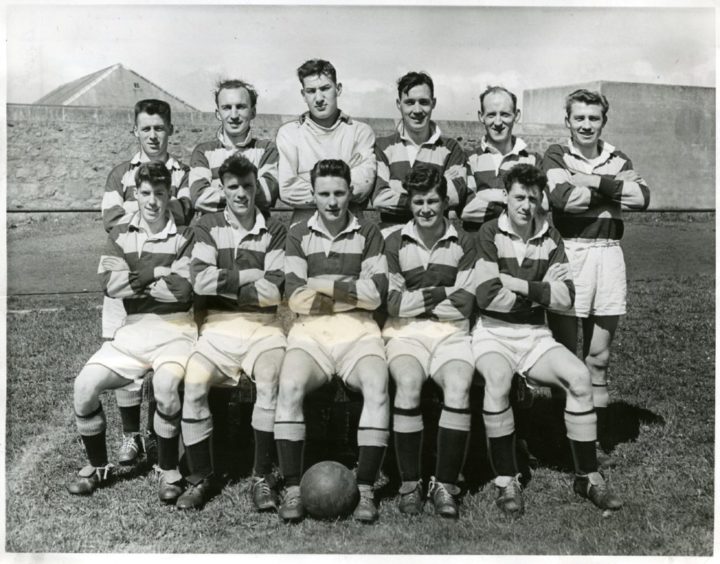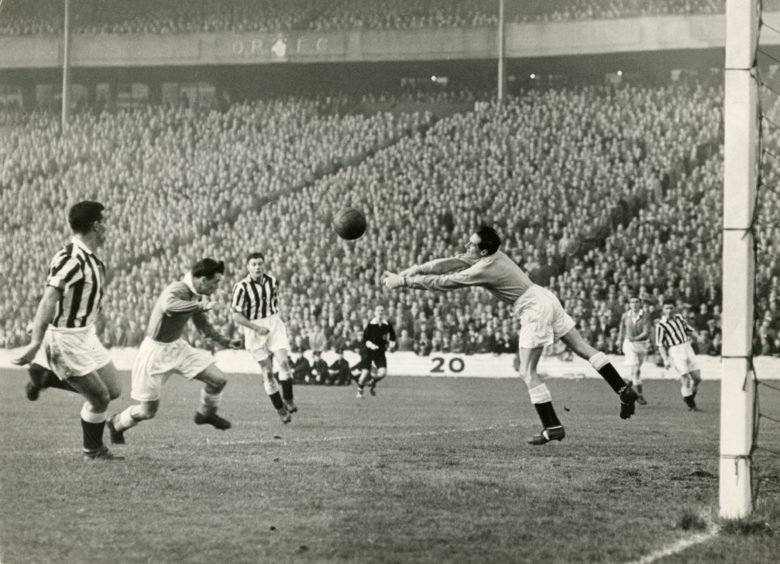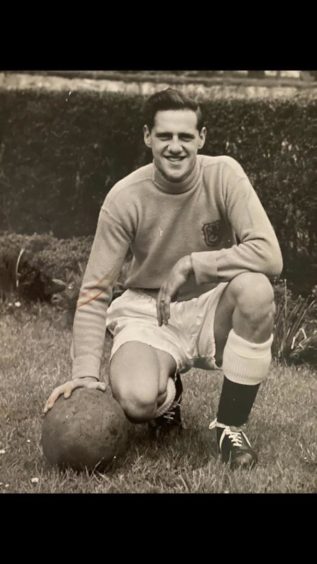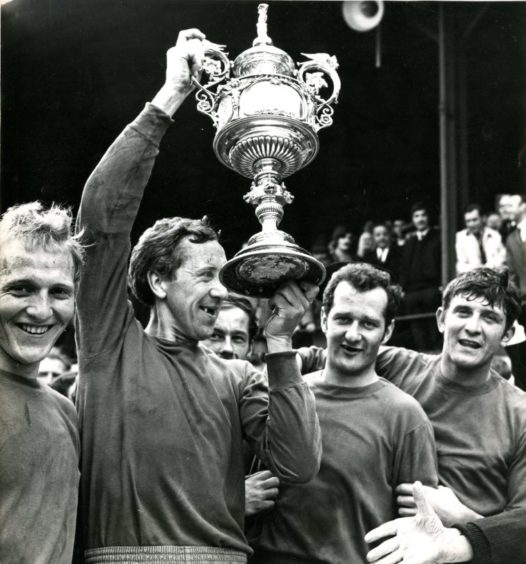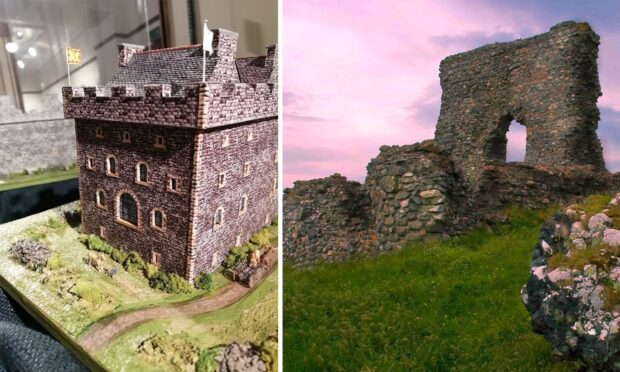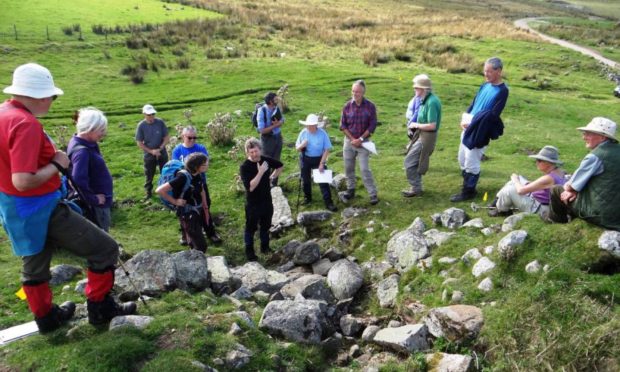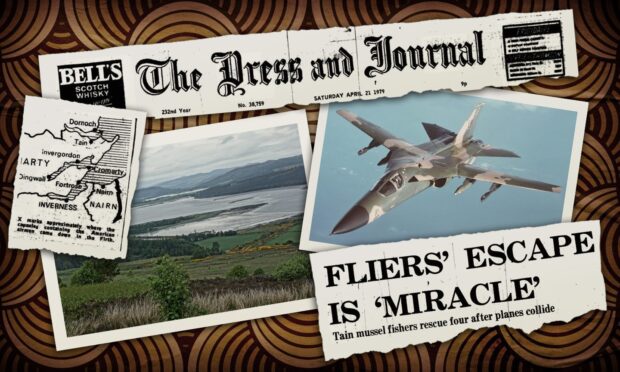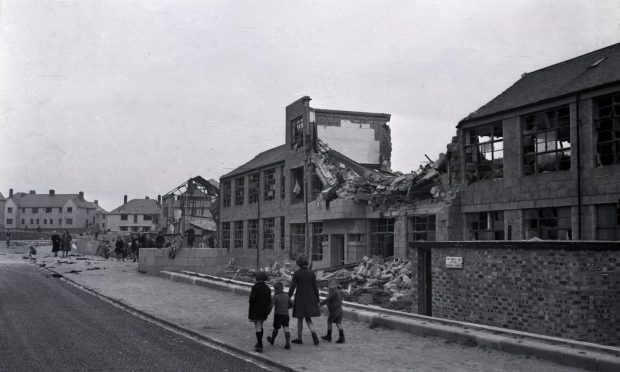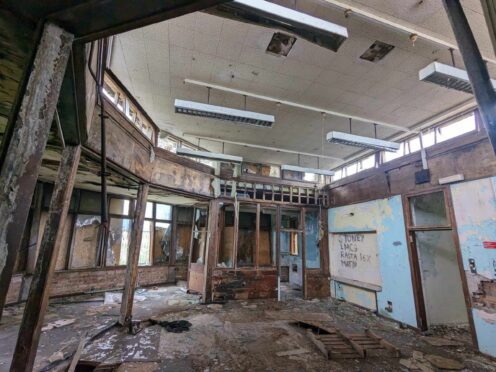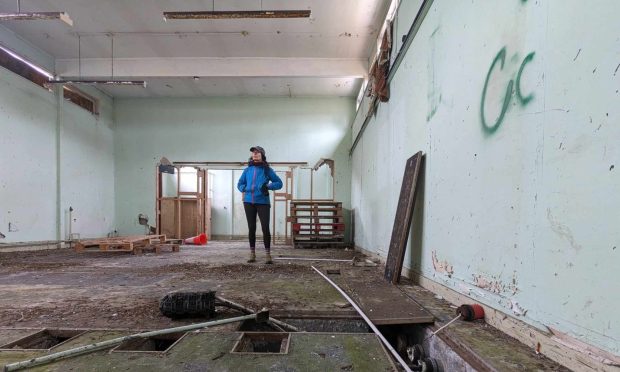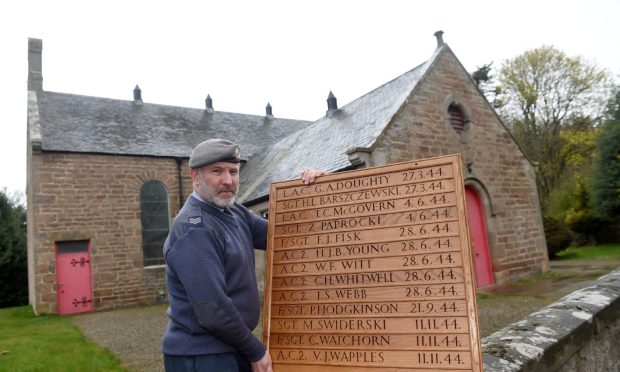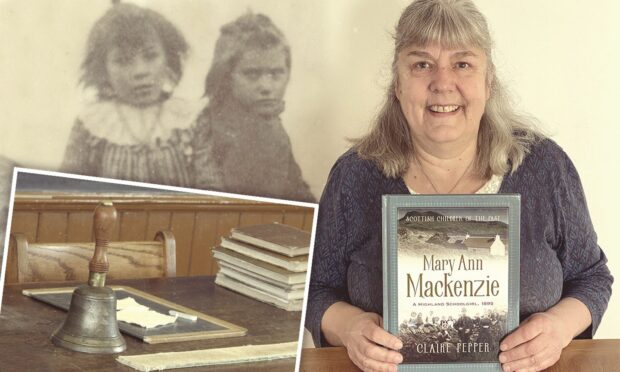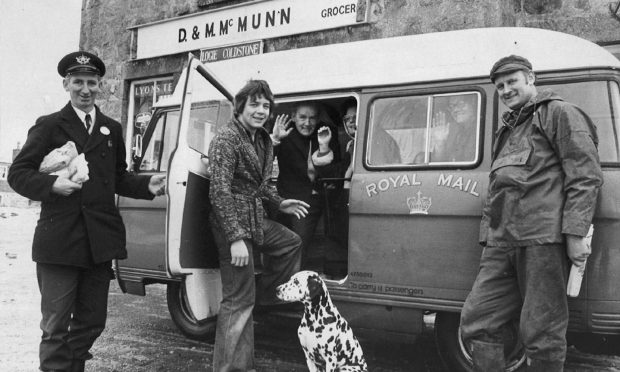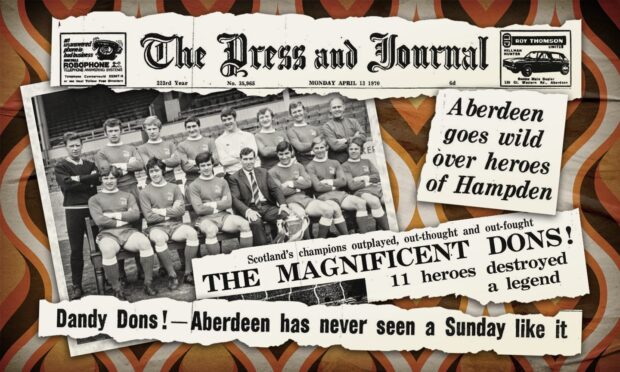They are movies that show Aberdeen as it was in the 1940s and 1950s: a treasure trove of images discovered by a north-east family.
The cache of cine films was shot by Jim Lornie, a Granite City stalwart who played professional football for St Mirren.
He recorded all manner of family trips to Aberdeen Beach, Pittodrie stadium and major sporting occasions.
These include his brother, Jack, playing for Banks O’Dee on the famous day they won the Scottish Junior Cup in front of more than 30,000 fans at Hampden Park in 1957, and captivating pictures of the arrival of mercurial South African player Joe Botha at Pittodrie the previous year.
A young Dons supporter, Laura Taylor, has been in touch to show the Nostalgia team the poignant and evocative contents of some of the films and has explained why they are so significant to her and her family.
In particular, she spoke about her delight at being able to watch her great uncle and his brother, neither of whom she ever met, in addition to several members of her own kith and kin through the medium of celluloid.
Laura said: “When I first heard about the films, I was extremely excited.
“As the youngest member of the family, I had never met Jim or Jack but I had heard many stories about their football careers so I couldn’t wait to see what Jim had been able to capture from back in the ’50s.
“The first time I watched the films was really emotional because my grandparents feature in a few of them and they both passed away more than 20 years ago.
“It was amazing to see them both running around and it is not very often that you are able to see movies of your parents as children, either.
“‘As an AFC fan, I was particularly interested in all the footage of Joe Botha – a South African player who joined Aberdeen in 1955-1956.
“We are still not sure how he came to be in the family videos but we would love to be able to send the videos to any of his family, if they are out there somewhere.”
The different films highlight days out at picnics, on the beach and family walks, and feature such prominent Aberdeen places and institutions as Provost Fraser Drive, Northfield Academy, Aberdeen Grammar School and, of course, Pittodrie, where Jim and Jack spent so many happy hours together.
The findings have been the catalyst for Laura to dig further into the past and she was surprised to learn about her link to other people called Lornie who have made their mark on Scottish football history – though not, perhaps, in the fashion they would have chosen.
She said: “The whole family are really proud of Jim and Jack and what they were able to achieve in their careers.
“A few of us have started tracing back our family trees in lockdown and we have found out that Jim’s grandad, Andrew, was also famous for his goalkeeping efforts – but, unfortunately, it was for all the wrong reasons.
Keeping it in the family
“He currently holds the record for conceding the most goals in a single game, as the keeper for Bon Accord in their Scottish Cup first-round defeat to Arbroath in 1885, when the end result was 36-0.
“Luckily, Jim and Jack’s careers were a lot more successful, but it certainly brought some comedy value to the search.
“Another interesting fact about that 36-0 defeat is that another one of his grandsons – Sid, not Jim – married Olive Wilson, whose grandad conceded 35 goals while he was playing for Aberdeen Rovers on the same day in 1885.
“So, when you add it up, between Sid and Olive, their grandads conceded 71 goals between them in the space of one day.”
Jim Lornie was involved in the 1955 Scottish League Cup final at Hampden Park between Aberdeen and St Mirren.
The Dons won the match 2–1, thanks to a goal by Graham Leggat and an own goal by the hapless Jim Mallan.
Their triumph came just a few months after they had made history by winning the Scottish championship for the first time in their history.
Jim Lornie, who was employed as a school caretaker after hanging up his boots, also worked as a scout for Liverpool and persuaded George Scott to join up with Bill Shankly at Anfield, where he was part of the squad that propelled the Merseyside club to their maiden FA Cup triumph, in 1965.
“The Dons were my heroes,” said Scott, who recently released his autobiography. “And initially, I only wanted to play for them.
“But then, when I was 15, Liverpool came along. The furthest I had been up to that point in my life was just down the road to Dundee.”
And his life changed with the assistance and encouragement of Lornie.
Meanwhile, Jack Lornie progressed from excelling on the junior circuit to performing with distinction as an inside forward in the Football League for Leicester City, Luton Town, Carlisle United and Tranmere Rovers.
When he finished his career in England, he returned to Scotland in the summer of 1966 and signed for Dingwall-based Ross County FC, where he spent the next decade – first as a player, then coach.
Both these redoubtable Lornies thrived in the days before Scottish matches were regularly televised and, for decades, it was thought their exploits had been consigned to the history books.
But now, with the emergence of these films, the two men and many of their teammates and relatives are no longer prisoners of the past.
Old cine films bring Aberdeen family’s memorable moments back to life again
